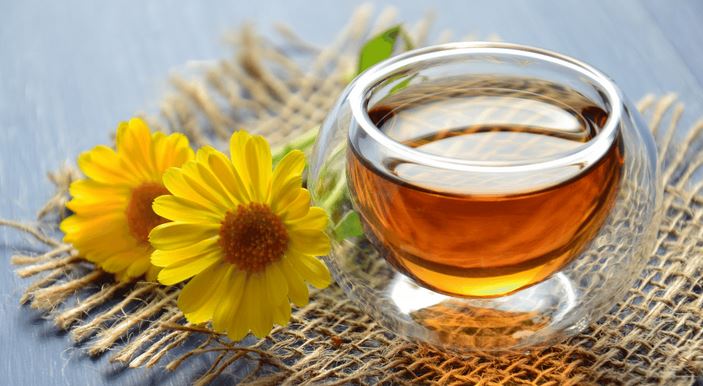Imagine sipping a warm, earthy brew that not only delights your taste buds but also enhances your mental clarity and boosts your overall well-being. Lions Mane Tea is becoming increasingly popular among health enthusiasts for its remarkable benefits. If you’re curious about this unique beverage and how it can transform your daily routine, you’re in the right place .From ancient traditions to modern wellness practices, there’s much to discover about this fascinating drink. Let’s dive into the world of Lion’s Mane Tea and explore what makes it so special.
What is Lion’s Mane Tea?
Lion’s Mane Tea is an herbal infusion made from the Lion’s Mane mushroom, known scientifically as Hericium erinaceus. This unique fungus has a striking appearance, resembling a white pom-pom or cascading icicles. Its culinary and medicinal uses have gained popularity in recent years.
The tea itself offers a pleasant earthy flavor with hints of sweetness, making it a delightful alternative to traditional beverages. Many enjoy it for its soothing properties and versatility.
Rich in antioxidants and bioactive compounds, Lion’s Mane Tea provides numerous health benefits. It’s not just about taste; this drink taps into the power of nature to support brain function and overall wellness.
Whether brewed from dried mushrooms or powdered extracts, Lion’s Mane Tea serves as an excellent addition to your daily routine. It’s easy to prepare and packed with potential advantages that can enhance both mind and body.
The History and Origins of Lion’s Mane Tea
Lion’s Mane tea has roots that stretch back centuries. This unique mushroom, known scientifically as Hericium erinaceus, has been revered in traditional Chinese medicine. Ancient herbalists valued its potential to enhance cognitive function and promote overall well-being.
The name “Lion’s Mane” comes from its distinctive appearance, resembling the flowing mane of a lion. Found predominantly in North America, Europe, and Asia, this fungus thrives on hardwood trees.
In Japan, it is referred to as “Yamabushitake,” named after the reclusive monks who sought enlightenment in nature. These monks believed that consuming Lion’s Mane could lead to heightened mental clarity.
Through time, various cultures have recognized its benefits. Today’s modern health enthusiasts are rediscovering this ancient brew for its rich flavor and promising health properties. The transformation from an obscure ingredient to a wellness trend illustrates the timeless quest for natural remedies.
Health Benefits of Drinking Lion’s Mane Tea
Lion’s Mane tea is packed with potential health benefits that make it a popular choice among wellness enthusiasts. One of the most significant advantages lies in its ability to support cognitive function. Studies suggest that compounds found in Lion’s Mane may promote nerve growth factor (NGF) production, which plays a crucial role in maintaining brain health.
Additionally, this herbal tea boasts anti-inflammatory properties. Regular consumption can help reduce inflammation throughout the body, potentially alleviating chronic pain and enhancing overall well-being.
Moreover, drinking Lion’s Mane tea might boost your mood and alleviate symptoms of anxiety and depression. Many users report feeling calmer and more focused after incorporating this brew into their daily routine.
Lion’s Mane has antioxidant qualities as well. These antioxidants combat oxidative stress at the cellular level, supporting longevity and vitality in everyday life.

How to Make Lion’s Mane Tea at Home
Making Lion’s Mane tea at home is a simple and rewarding process. Start by sourcing high-quality dried Lion’s Mane mushrooms, which you can find in health food stores or online.
Begin with about one to two tablespoons of the dried mushrooms.Then, chop them into smaller pieces for better extraction.
Next, bring four cups of water to a boil in a saucepan. Once boiling, add your chopped mushrooms and reduce the heat to let it simmer for 20-30 minutes. This slow cooking allows the beneficial compounds to infuse into your tea.
Afterward, strain out the mushroom pieces using a fine mesh strainer or cheesecloth. You’ll be left with a golden-hued liquid that holds all the goodness of Lion’s Mane.
Feel free to enhance your tea with honey or lemon for added flavor before sipping and enjoying its earthy taste!
Other Uses for Lion’s Mane Mushrooms
Lion’s Mane mushrooms are not just a delightful addition to your tea. They have diverse applications that extend beyond the cup.
In culinary arts, their unique texture resembles seafood, making them a popular meat substitute in vegan dishes. Chefs often use Lion’s Mane for its ability to absorb flavors and add depth to meals.
Beyond cooking, these mushrooms shine in supplements. Their extracts are known for supporting brain health and cognitive function. Many wellness enthusiasts incorporate them into daily routines for enhanced focus.
Additionally, Lion’s Mane is gaining traction in skincare products due to its antioxidant properties. Some formulations tout benefits like improved skin hydration and reduced signs of aging.
The versatility of Lion’s Mane extends even further into traditional medicine where it’s used as a natural remedy for digestive issues and inflammation relief—showing just how multifaceted this mushroom truly is.
Potential Side Effects and Precautions
While Lion’s Mane tea is generally safe for most people, it’s important to be aware of potential side effects. Some individuals may experience digestive discomfort or an upset stomach after consumption. This could be due to the high fiber content in mushrooms.
Allergic reactions are another consideration. If you have a known allergy to fungi, it’s best to avoid this tea altogether.
Pregnant and breastfeeding women should exercise caution as there isn’t enough research on its effects during these periods. Consulting a healthcare provider before adding new supplements or teas is always wise.
Interactions with medications are also possible. If you’re on prescribed drugs, especially those affecting blood sugar levels or anticoagulants, discussing Lion’s Mane with your doctor is advisable. It’s better to prioritize safety while exploring natural remedies.
Conclusion:
Adding Lion’s Mane tea to your daily routine might just be one of the best decisions you make for your health. With its unique blend of history, flavor, and impressive benefits, this herbal infusion offers more than just a delightful taste. It supports brain function, enhances mood, and boosts immunity—all while being an enjoyable beverage.
As you explore the world of wellness drinks, consider incorporating Lion’s Mane tea into your regimen. Experiment with brewing it at home or seeking out ready-made options at local stores. The potential cognitive and physical benefits are hard to ignore.
Whether you’re looking for a mental boost during long work hours or simply wish to enjoy a soothing cup in the evening, Lion’s Mane tea has something valuable to offer everyone. Embrace the journey toward better health by giving this remarkable mushroom brew a try you may find it becomes a staple in your lifestyle before you know it.
